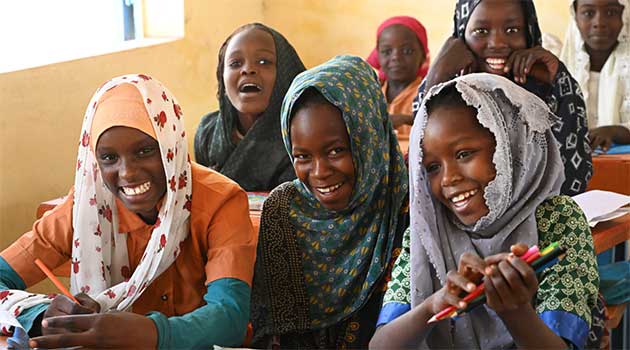NEW YORK – On World Refugee Day, we must stand in solidarity with the 120 million forcibly displaced people – including 43 million refugees worldwide – who have lost their homes and their human rights as the result of persecution and conflict.
As we unite with partners across the UN system, donors, the private sector and member states, we cannot forget the power of education to protect and safeguard the futures of the world’s most vulnerable children. These are children uprooted from their homes, their schools and their country, often ending up outside the public school system.
Our world is bleeding from inhumane and brutal armed conflicts. The most recent statistics from our partner UNHCR indicate the number of forcibly displaced people worldwide increased by 8% between 2022 and 2023, continuing a series of year-on-year increases over the last 12 years. In the State of Palestine alone, 6 million refugees are under UNRWA’s mandate. The world at large is facing the largest number of refugees since World War II.
Low- and middle-income countries are affected the most, with 75% of the world’s refugees and other people in need of international protection.
The dispossession, the uprooting, the suffering stemming from human rights abuses has become the new ‘normal’ for these forcibly displaced populations. Their lives and development demand a turn-around from the abnormal to real normalcy. Living at home and attending a public school is every child’s right and necessity.
On my recent visit to Chad, I saw firsthand the hollow eyes and fears in the eyes of young children fleeing from Darfur in Sudan to Chad. I saw firsthand how UNHCR and other aid organizations stayed with them day-and-night to provide a sense of safety and basic necessities. I saw how the power of education to insulate children from the horrors of conflict and forced displacement indeed is possible.
ECW has provided US$10 million to date in response to the Sudan regional refugee crisis, with First Emergency Response grants in the Central Africa Republic, Chad, Egypt, Ethiopia, and South Sudan. In Sudan itself, 18 million children are out of school, and we must urgently ramp up global funding to address what is fast becoming the world’s worst humanitarian crisis.
The humanitarian crisis in Venezuela has become one of the largest international displacement crises in the world with 8 million Venezuelans displaced globally, according to UNHCR. In neighboring countries including Colombia, Ecuador and Peru, ECW has provided catalytic funding for Multi-Year Resilience Programmes that are having a tangible impact on the lives of millions.
There is a human face to these stories of transformation. For forcibly displaced children like Shaimaa in Sudan, Darya in Moldova, Josveglys in Colombia and Jannat in Bangladesh, our investment in education is our investment in human life, in human rights, peace and security.
The best step we can take is not to simply race from one emergency to another. We must build the systems, policies and infrastructure needed to ensure development depth and sustainability. By translating our response through humanitarian-development joint programming, we can respond with both speed and depth. This requires financing.
On World Refugee Day, step up to #ShareTheirVoices as we stand in solidarity #WithRefugees everywhere. More so, let’s step up to end all the conflicts that force them to flee. Let’s step up and finance their right to an inclusive and continued quality education. Let’s empower them to use their resilience and, one day, lead.
World Refugee Day Statement by Education Cannot Wait Executive Director Yasmine Sherif
INPS Japan/IPS UN Bureau


